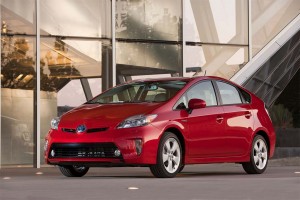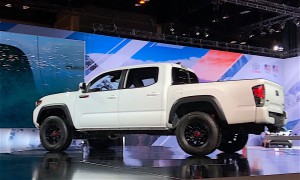Toyota is recalling 2.4 million Prius hybrids worldwide – including 807,000 in the U.S. – that could stall while driving.
The Japanese automaker said the action covers certain 2010 to 2014 Prius hybrids and certain 2012 to 2014 Prius V hybrids. The problem stems from the vehicle failing to move into “fail-safe driving mode” when the car’s hybrid system “faults.”
While it issue happens rarely, “the vehicle could lose power and stall. While power steering and braking would remain operational, a vehicle stall while driving at higher speeds could increase the risk of a crash.”
The automaker did not say whether it had linked any crashes, injuries or deaths to the problem.
(Toyota Supra set to debut at Detroit Auto Show. Click Here for the story.)
The resolution to the problem is a software update. Dealers will perform the update at no cost to owners and customers will be notified when they can bring their vehicles in for the repair.
It’s the second time around for this issue with Toyota issuing recalls in 2014 and 2015 for a similar problem. However, the original fix did not “anticipate this new condition,” Toyota said.
(Click Here for more about Toyota recalling 1M hybrids.)
Additionally, Toyota recalled certain 2018 to 2019 Tundra pickup trucks and Sequoia SUVs, as well as 2019 Avalon cars, to repair an airbag defect. That recall covers about 188,000 worldwide, including 168,000 in the U.S.
“Due to inappropriate programming in the airbag electronic control unit (ECU), a fault may be erroneously detected during vehicle startup which would disable one or more of the sensors used to detect crashes,” Toyota said.
(To speed up autonomous efforts, Toyota investing $500M in Uber, Click Here.)
“This could result in the side and curtain shield airbags and/or front and knee airbags not deploying as designed in a crash. As a result, there is an increased risk of injury in the event of a crash and regulatory requirements in certain markets may not be met.”


